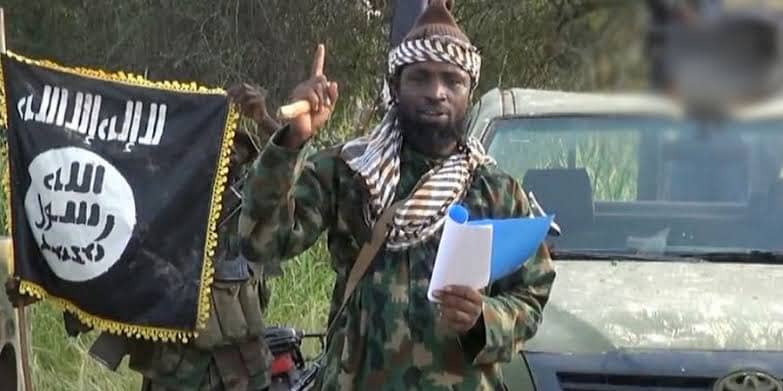On March 3, 2020 the Arabic language Twitter account of the United States Department of States, also known as ‘Rewards for Justice Program’, placed a fresh bounty on the head of Boko Haram leader, Abubakar Shekau, making it the fourth time such action has either be taken by the American or Nigerian Government. The previous three have been without success.
PRNigeria has, however, gathered from reliable sources that bounties being placed on Shekau’s head by the USA and Nigerian authorities with the recent being the 4th in the series may not be impactful with the prevailing situations in the war against terror and owing to the fact that the rewards on previously captured Boko Haram leaders were not honoured.
In the tweet, the counter-terrorism rewards program of the US Department of State’s Diplomatic Security Service regarded Shekau as a cancer tumour that must be eliminated and thereby renewed a pledge of $7 million (N2.5 billion) bounty on his head for any information that would lead to his arrest..
“This Cancer tumour must be eradicated! The US government offers up to $ 7 million for anyone who provides information leading to the arrest of the terrorist Abu Bakr Organization leader,” the tweet read.
But many stakeholders including intelligence and security experts have wondered if there is any difference the latest bounty will make if previous attempts failed to yield the desired results.
Shekau has been the leader of Boko Haram since the extrajudicial killing of its former leader, Mohammed Yusuf, in 2009 with a bounty placed on his head four times including two each from the Nigerian and United States Governments.
On the face of it, the bounties are part of the wider counter-terrorism and counter-insurgency efforts against the terrorist group that has killed thousands and displaced millions from their homes in the northeast part of Nigeria.
However, sources were quick to remind that there is nothing new with the latest action as the same bounty has been declared by the US seven years ago and that Nigerian military has also failed to fulfil their end of the bargain in previous attempts.
“There is not much difference between the US bounty of 2013 and this recent one. It is just like a reminder and President Donald Trump is using it to launder his image on the fight on terrorism,” a source said.
Also, it was revealed that a certain military officer and personnel of the Department of State Services (DSS) were denied their ransom rewards after helping to capture and eliminate some Boko Haram leaders who had bounties placed on their heads.
PRNigeria was informed that “a certain operation in 2015 led to the arrest of Bashir Aketa in Gombe State. Nothing was paid being that the information came from security personnel from the DSS. Bashir was on the list of 19 Boko Haram leaders declared wanted on November 23, 2012, by the Nigerian military”.

Here is a chronology of the bounty declarations on Shekau and other Boko Haram leaders:
- November 23, 2012: The then Joint Task Force (JTF) ‘Operation Restore Order’ placed a bounty of N50 million on Shekau and different amounts for 18 others. Within six months all the 17 had been killed with the exception of Shekau and Khalid Albarnawee. Also Bashir Aketa was arrested and the military officer who was vital to his arrest and that of the then one of a most dreaded terrorist leader, Adam Kambar, was not rewarded with the N20 million bounty. ” This created doubts and lack of sincerity in the system and the whole arrangement,” a source stressed.
- June 2013: The USA placed a bounty on Shekau $7 million, Albarnawee Khalid $5 million and Adam Kambar $5 million (who was neutralized three months earlier by a team of brilliant Nigerian Army Officers).
- February 2018: The Chief of Army Staff (COAS), Lt-Gen. Tukur Buratai, in a blizzard twist placed a N3 million on Shekau, which is a downgrade from the N50 million bounty by the military authorities six years earlier.
- March 3, 2020: In also another curious twist, the US Department of State placed another or a renewal earlier bounty of $7 million on Shekau.
Despite these series of reward packages, tracking and eliminating Shekau has remained an uphill task because, according to intelligence sources, “he is in the jungle and the Nigerian military has no capacity to reach him and the US has no Memorandum of Understanding (MOU) with Nigeria to provide such”.
The implication, PRNigeria gathered, was that even if the information is provided to the military (as always), they can’t go beyond the fringes of Sambisa forest.
“The issue is not information but capability. Even on the streets of Maiduguri, you will get information on all Boko Haram locations, including that of Shekau and other leaders. But the military cannot do anything about it.. No capability to reach objectives, they sometimes wait to ‘repel attacks,” the source regretted.
By PRNigeria


